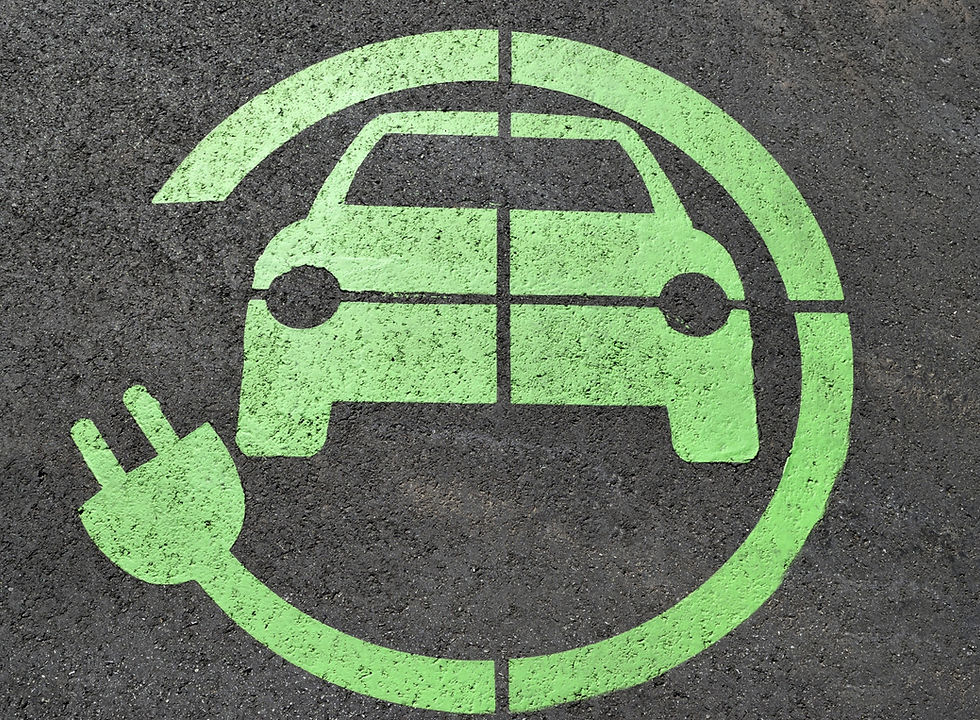Nigeria: the Next Superpower?
- Nicholas Kinberg
- Mar 12, 2018
- 3 min read

The most populous country in its continent. A hegemon in its region. A defender of multilateral institutions and bilateral relationships. If this were North America, people would immediately think the United States. But in Africa, the rising liberal and democratic power is Nigeria.
Since its independence from the United Kingdom in 1960, Nigeria has seen itself as the arbiter for pan-Africanism, frequently sending foreign aid to other countries while unfortunately receiving little in return.
It also initially pursued a pro-West relationship, courting the favor of countries like its previous colonial rulers and France. This inclination changed with the Nigerian Civil War (1967-1970), during which Western powers funded both the Nigerian government and its opponent, the separatist province Biafra. France was the primary patron of Biafra—but this alone was not the problem. The problem was French influence in Nigeria’s region of west Africa; several states surrounding Nigeria were Francophone, making the area quite dangerous for the rising post-English colony. The French-Nigerian relationship was, as a result, fraught during the 1970s, and even though it improved over time, other factors got in the way of Nigeria’s rise: coups, a military regime that was both anti-West and anti-capitalist, lack of respect for the rule of law, and other weaknesses.
The current policies of Nigeria aim to fix this. The Presidents of Nigeria, especially the sitting Muhammadu Buhari, have striven to increase foreign direct investment (FDI) to the once-beleaguered country, its gross domestic product (GDP) peaking at $568.5 billion in 2014. This FDI has been especially important, considering the reason for why Nigeria’s economy had been doing so well until just a couple of years ago. Its exports, almost ninety percent of which is in petroleum, suffered greatly from the drop in oil prices in 2014. Investments by foreign entities are thus crucial to diversifying the west African economy.
Chinese investment in Nigeria, as part of its Belt and Road Initiative, has totaled over $20 billion. This has been in projects such as the Ibadan–Ilorin–Minna-Kaduna–Kano line, the Lagos-Calabar Coastal Rail project, and general agricultural development (the last of which is worth over $15 billion!).
Still, the most populated state in Africa must deal with other major problems, so much so that the UN has claimed that one of the four major famines is taking place in the country. Boko Haram, the Islamic State franchise in the Sahel, is the harbinger of this catastrophe, leading an insurgency that has destroyed agricultural infrastructure in the northeast provinces of Yobe, Borno, and Adamawa.
Those with knowledge of these events are quick to blame the Nigerian government for its counterterrorism strategy: suffocating the regions under the control of Boko Haram. Indeed, this tactic has made it impossible for aid organizations to deliver the food necessary to keep the inhabitants of these regions alive. But one must also remember that Nigeria, a country that now cannot pay its own government workers, is doing everything in its power to alleviate the crisis, including negotiating with the terrorist group. That alone should show just how desperate the situation has become—but it doesn’t end there.
If the Nigerian government has made it difficult to enter provinces in need of food aid, Boko Haram has committed atrocities far worse, among which is preventing organizations from delivering that food aid. They wish to, like other terrorist groups such as al-Qaeda, monopolize the region in which they operate, making themselves the only option for survival. It is a cruel but effective tactic, incentivizing people to join the terrorist organization just to make ends meet. The problem is exacerbated by a lethargic international community, one made even more ineffective by cuts to USAID. But still, Nigeria soldiers on.
It does this in the form of an iron commitment to the region, whether that be with relations through the Economic Community of West African States (ECOWAS) or the LAKE CHAD Commission. The fruits of such relationships can be seen in, for example, an event that took place almost a year ago: the ousting of Gambian dictator Yahya Jammeh in favor of the democratically elected Adama Barrow.
With this current trajectory and more resources directed toward destroying the Boko Haram and its reason for existence, Nigeria will become a superpower in Africa, earning such accolades as becoming a permanent member of the United Nations Security Council. What makes all of this so ironic is that the person leading this progressive charge was Nigeria’s dictator from 1985 to 1987. Who would’ve thought that a leader whose policies then reflected isolationism and antagonism toward neighbors, would eventually subscribe to liberal and democratic values?
Under the Buhari administration, Nigeria is embattled, but prospects are looking up. Soon, this bipolar world, led by the United States and China, could become tripolar, if Nigeria plays its cards right.
Photo credit Zouzou Wizman, Creative Commons







Comentarios